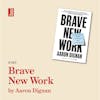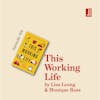Power by Kemi Nekvapil: why power takes practice
About the author
As a black child raised by five sets of white foster parents (some incredibly loving, some - not so much) I always felt that I had to prove my worth, so that I would to be 'allowed to stay.'' I had to be not only a 'good girl' but a 'good black girl'. I had no say in where I would live or who my new mum and dad would be, or where I would be living next.
I was told to always be thankful, always be grateful for what I had, to never ask for more and, to never rock the boat.
And now with thirty years of personal and professional development in my bones, things have changed.
Professionally, I am an ICF credentialed coach with nearly a decade of ethical coaching under my belt.
I work with women who want to lead value based and empowered lives.
I am a feeling person. I can be with and honour my own feelings; so I can sit with and honour your feelings.
I am a person of meaningful action; so I can guide you to create meaningful action that supports you and your life.
I have no agenda and I don't judge.
If you want someone to walk alongside you, as you step into your worth and begin to create the life that you want, it will be my honour and privilege to support you.
Source: https://www.keminekvapil.com/aboutkemi
About the book
The world does not need busy women, it needs present and powerful women.
Blending inspiring stories with reflective coaching practices, POWER provides the tools to navigate the challenges that impact who we are, from discrimination and burnout to trauma and self-doubt.
Reclaim your power and create a life of true joy and fulfilment.
Source: https://www.keminekvapil.com/power-book
Big idea #1 – Defining Power
Kemi pays careful attention to the definitions. Throughout the book, she pulls out the Oxford English dictionary and defines some words where their meaning has been attached to things that aren't their original dictionary definition.
Included in this is defining power. She talks about how power is abstract and intimidating for many women so often we need to call it other things, to feminise it, call it 'soft power' to make it more palatable. But it's time to redefine and reclaim it for what it is. Power might have always looked male, white or some other combination of traits that just aren't yours.
Power might also feel associated with other words, for example, ambition. Kemi associated ambition as a less positive trait until she looked it up, and realised that ambition is not a bad thing at all.
She calls for a new paradigm, starting on the inside; women believing in themselves and feeling like they belong, owning their power and supporting and coaching others to do the same.
Power redefined can be used as individuals and as a collective. Importantly it is power ‘with’, not power ‘over’, using the Brené Brown language. Power ‘over’ is what most people have experienced, hence the more negative connotations and ideas that we have about the idea of power. Like most systems, patriarchy is designed to support itself and sustain itself. So, we must dismantle it by using power differently.
Big idea #2 – POWER
Kemi breaks power into its own acronym. ‘Presence, ownership, wisdom, equality, and responsibility’
-
Presence is being aware in the moment, knowing the impact that we have and using it to connect with ourselves and with others.
-
Ownership is the ability to integrate all parts of ourselves. Who you are, what you stand for, your experiences and the impact those have had on you and owning the story, rather than someone else's interpretation.
-
Wisdom is our inner wisdom, trusting your gut, and knowing that we often give our power away in the language we use of stories we tell ourselves. We need to trust ourselves rather than deferring trust or deferring power to other people because that's what we've always done.
-
Equality is the role that we have to play in shaping global equality, helping others who have less than we do, and owning our privilege. This allows us to help and shape things in a different way for others.
-
Responsibilities - taking responsibility for our power and deciding how we're going to use it. We can use that to act or behave in a particular way that is aligned with the power that we have.
Using these principles, you'll be able to build power from the inside out. Which allows you to shift the structures around us so that more people are empowered.
Big idea #3 – Practice Makes Power
Practice makes power, or power takes practice.
Power is not something that can just be reclaimed by reading a book. It's not knowledge based. It does take work and hard conversations. It takes uncovering our preconceptions and ideas that maybe we haven't ever explored.
To do all of this it takes practice, it takes boundaries, which need to be clear, communicated, and committed to do the work. This practice might cause you to realise some hard truths, but ones necessary to reclaim and redefine power and use it for collective good.
Support my book habit: https://www.buymeacoffee.com/stephsbookshelf
See omnystudio.com/listener for privacy information.
Hey, have you subscribed to the bookmark newsletter? If you liked this, you might like my twice-monthly email with book reviews and ideas of what you should be reading, and listening to, next. Click here to subscribe.
Popular episodes
Here are some great episodes to start with.

















